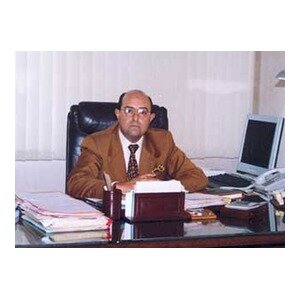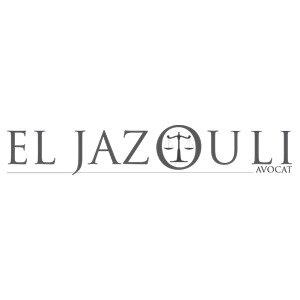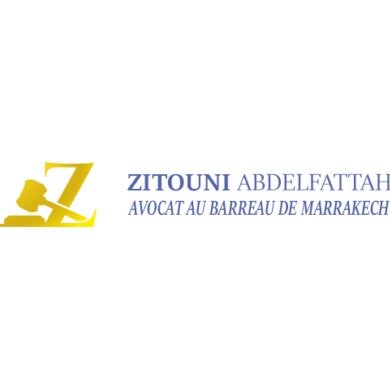Best Structured Finance Lawyers in Marrakesh
Share your needs with us, get contacted by law firms.
Free. Takes 2 min.
List of the best lawyers in Marrakesh, Morocco
About Structured Finance Law in Marrakesh, Morocco
Structured finance is a specialized area within finance law that deals with complex financial instruments and transactions designed to meet specific financing needs that conventional lending cannot accommodate. In Marrakesh, Morocco, structured finance is increasingly important due to the city's growing reputation as a hub for international business, tourism infrastructure, and real estate development. Moroccan law provides both regulatory frameworks and investment incentives that support diverse structured finance arrangements, such as securitization, syndicated loans, asset-backed securities, and project finance.
Why You May Need a Lawyer
Engaging in structured finance transactions can be complicated due to the multiple parties, regulatory requirements, and financial risks involved. Common situations where legal help becomes necessary include:
- Drafting and negotiating complex financial agreements
- Ensuring compliance with Moroccan financial regulations and anti-money laundering laws
- Structuring securitization deals or syndicated loans for large-scale projects
- Resolving disputes between investors, lenders, and borrowers
- Conducting due diligence for mergers, acquisitions, or restructurings
- Advising on tax implications of structured finance products
- Assisting local or international investors to navigate cross-border transactions
A lawyer with expertise in structured finance can help prevent costly mistakes, protect your interests, and ensure that your transactions are both legally sound and commercially viable.
Local Laws Overview
Structured finance in Marrakesh operates within the larger framework of Moroccan financial law and is regulated by several key statutes and authorities. The most relevant legal considerations are:
- Banking Law: Overseen by Bank Al-Maghrib, Morocco’s central bank, these regulations cover credit institutions, lending practices, and risk monitoring.
- Capital Markets Regulation: The Moroccan Capital Market Authority (AMMC) supervises activities related to public fundraising, asset-backed securities, and investment vehicles.
- Securitization Laws: Moroccan law allows for securitization of assets, enabling the creation of asset-backed securities through specific vehicles (Fonds de Titrisation).
- Company Law: Sets the legal basis for entities that can participate in complex finance transactions or issue bonds and other securities.
- Tax Law: Tax considerations for structured finance deals can be particularly intricate and may require advance rulings or approvals.
- Foreign Investment Controls: The Moroccan Exchange Office and the Investment Development Agency regulate foreign participation in local finance transactions.
Understanding and complying with this mix of regulations is vital for the successful execution of structured finance deals in Marrakesh.
Frequently Asked Questions
What is structured finance?
Structured finance refers to highly involved financial transactions that use complex legal and financial techniques to provide financing or manage risk, often involving multiple parties and asset classes.
How does securitization work in Morocco?
Securitization in Morocco involves pooling assets, such as mortgages or loans, and issuing securities backed by those assets via specially created entities regulated by the AMMC.
Do I need government approval for structured finance deals?
Yes, many structured finance transactions require registration or prior approval from regulatory bodies such as Bank Al-Maghrib or the AMMC, particularly for cross-border deals or public offerings.
What role do lawyers play in structured finance?
Lawyers help draft and negotiate transaction documents, ensure compliance with local laws, conduct due diligence, and structure deals to mitigate legal and financial risks.
What are the most common risks in structured finance?
Risks include credit default, regulatory non-compliance, tax implications, and disputes among stakeholders.
Can foreign investors participate in structured finance in Marrakesh?
Yes, but there are foreign exchange controls and certain restrictions requiring compliance with local investment regulations and currency laws.
How are structured finance deals typically taxed?
Tax treatment depends on the structure of the transaction, the assets involved, and the parties' residency status. Advance tax planning is often required.
Are there dispute resolution mechanisms?
Yes, most agreements include arbitration or litigation clauses, and Morocco supports both domestic and international arbitration forums for resolving finance disputes.
What types of assets can be securitized in Morocco?
Commonly securitized assets include loans, receivables, mortgages, leases, and other predictable revenue streams.
How long does it take to complete a structured finance transaction?
Timelines vary depending on complexity but expect transactions to take from a few weeks to several months, considering regulatory approvals and due diligence.
Additional Resources
If you need more information or official guidance, the following Moroccan institutions and organizations can be helpful:
- Bank Al-Maghrib (Moroccan Central Bank): Financial and banking regulation authority
- Moroccan Capital Market Authority (AMMC): Supervision of public offerings, asset-backed securities, and investment vehicles
- Moroccan Investment Development Agency (AMDIE): Support for foreign and domestic investors
- Business and Legal Departments in Marrakesh Chambers of Commerce
- Local law firms specializing in banking, finance, and capital markets
Publications, seminars, and workshops held by these organizations can provide valuable updates on regulatory changes and market practices.
Next Steps
If you are considering entering a structured finance transaction in Marrakesh, Morocco, it is advisable to seek expert legal counsel as soon as possible. Here is how you can proceed:
- Define your financing or investment objectives and gather all relevant documents
- Contact a law firm or legal advisor with experience in structured finance in Morocco
- Schedule an initial consultation to discuss your needs and assess the complexity of your deal
- Obtain advice on compliance, structuring options, and risk management
- Engage your lawyer to negotiate terms, draft agreements, and manage regulatory filings on your behalf
Taking these steps will help ensure your structured finance transactions in Marrakesh are legally compliant, efficient, and aligned with your business or investment goals.
Lawzana helps you find the best lawyers and law firms in Marrakesh through a curated and pre-screened list of qualified legal professionals. Our platform offers rankings and detailed profiles of attorneys and law firms, allowing you to compare based on practice areas, including Structured Finance, experience, and client feedback.
Each profile includes a description of the firm's areas of practice, client reviews, team members and partners, year of establishment, spoken languages, office locations, contact information, social media presence, and any published articles or resources. Most firms on our platform speak English and are experienced in both local and international legal matters.
Get a quote from top-rated law firms in Marrakesh, Morocco — quickly, securely, and without unnecessary hassle.
Disclaimer:
The information provided on this page is for general informational purposes only and does not constitute legal advice. While we strive to ensure the accuracy and relevance of the content, legal information may change over time, and interpretations of the law can vary. You should always consult with a qualified legal professional for advice specific to your situation.
We disclaim all liability for actions taken or not taken based on the content of this page. If you believe any information is incorrect or outdated, please contact us, and we will review and update it where appropriate.














